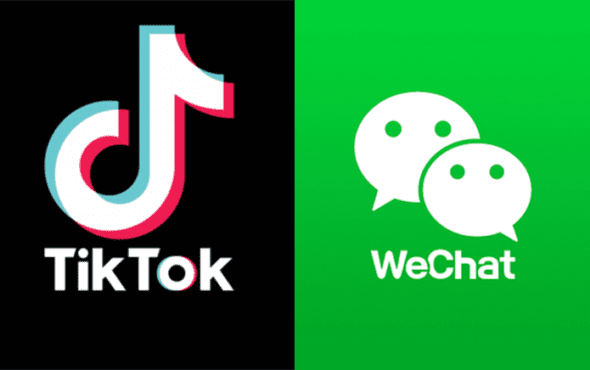
The Trump administration announces the banning of popular Chinese-based apps TikTok and WeChat in the U.S..
In a statement released on 18 September, U.S. Department of Commerce Secretary, Wilbur Ross, states: “Today’s actions prove once again that President Trump will do everything in his power to guarantee our national security and protect Americans from the threats of the Chinese Communist Party.”
He continued: “At the Presidents direction, we have taken significant action to combat China’s malicious collection of American citizens’ personal data while promoting our national values, democratic rules-based norms, and aggressive enforcement of U.S laws and regulations.”
In the executive order, which was signed on 6 August, WeChat operations in the US will be banned starting tomorrow the 19 September, with TikTok shutting down on 12 November.
The short-form video app still has a fighting chance of staying active in the U.S., but only if an American company buys it. Currently, the U.S. based company, Oracle is in talks with ByteDance, the Chinese parent company, on a deal to keep the app in the U.S.
NBC News Business & Tech correspondent Jo Ling Kent took to Twitter on Thursday stating: “According to a source directly familiar with the term sheet/agreement, if approved by POTUS, TikTok will become a global company headquartered in the US. Oracle takes responsibility for US operations + user data while ByteDance continues to be a majority shareholder.”
The new executive order has been met with criticism from users, influencers, and the Chinese government.
“China urges the US to abandon bullying, cease (its) wrongful actions and earnestly maintain fair and transparent international rules and order,” says Chinese Ministry of Commerce.
“If the US insists on going its own way, China will take necessary measures to resolutely safeguard the legitimate rights and interests of Chinese companies.” they continued.
Some of the apps biggest influencers, like Charli D’Amelio and Bryce Hall, have also felt the heat from this ongoing issue, with some switching to competitor apps like Triller, Instagram and YouTube.
News on #TikTok:
According to a source directly familiar with the term sheet/agreement, if approved by POTUS, TikTok will become a global company headquartered in US. Oracle takes responsibility for US operations + user data while ByteDance continues to be a majority shareholder
— Jo Ling Kent (@jolingkent) September 17, 2020
Related: TikTok admits to censoring some LGBTQ+ content on its platform.



